Overview
- Social media defamation involves false statements made online that harm an individual’s or business’s reputation.
- Defamation requires specific legal elements, including a false statement, publication, reputational harm, and negligence or intent.
- Legal defenses include truth, opinion, and privilege, which can protect individuals from defamation claims.
- Victims can seek legal remedies such as cease and desist letters, retractions, damages, and injunctive relief.
- False accusations on social media can damage reputations, causing business losses, harassment, or career setbacks.
- Understanding legal rights and taking proactive steps can help prevent, address, and mitigate the impact of social media defamation.
Social media may have changed the trance of communication, but has also created a lot of space for defamation. Social media defamation refers to the act of people or organizations posting false statements online. This is done with the intent to damage a person’s or business’s reputation.
What Is Social Media Defamation?
This occurs when someone releases a false comment online that harms another individual’s reputation. This can take place on any social media platform, such as posts or comments on instagram, video on youtube, threads on reddit, etc. The legal consequences may vary country to country, but by and large victims can resort to assistance.
What Is Considered Social Media Defamation?
In order for a statement to be deemed defamatory it must meet certain legal components:
- False Statement – The statement must be literally untrue.
- Publication – The statement must be communicated to someone else.
- Harm to Reputation – The statement must be detrimental to a person’s reputation.
- Negligence or Intent – The speaker must have been negligent or acted with intent and/or malice.

Picture Credits: Freepik
Defamation occurs when an individual makes a statement that wrongly accuses another party of something and harms their reputation and/or financial standing in the marketplace. This is not a full legal definition but covers the essential basics. Defamation law varies from country to country and state to state in the United States.
It is important to note not all negative comments are defamatory. Simply because a statement is negative or unflattering does not make it defamatory. If the statement is accurate or mere opinion, the statement likely did not meet the legal definition of defamation.
Is Social Media Defamation the Same as Internet and Online Defamation?
This is an important distinction to make. Social media defamation is part of larger online defamation. While this form may take place on social media sites, the latter may occur on other platforms. These may include: news forums, blogs, or any other digital platform.
Examples of Social Media Defamation Cases
Common examples could include scenarios such as people posting negative reviews on google about a restaurant/ company. Other examples can be in the form of a social media influencer giving a business a fake accusation of fraud resulting in profit loss.
What Are the Elements of Social Media Defamation?
Every claim for defamation has to satisfy particular legal elements. These elements help determine whether a claim meets the legal requisite for a lawsuit.
False Statement
The pronouncement should be factually and inherently untrue. If it is veracious in any manner, it is not counted;regardless of the harm to the other party’s reputation.
Publication
It should be publicly shared on a social media platform, such as X, Youtube, Instagram, Facebook, Reddit or any other social platform. If the message is shared in private, it will not be regarded as defamation.
Harm to Reputation
The statement must harm the other party in some manner. This may include loss of employment, loss of followers, loss of business revenue, or public humiliation.
Popular people usually have celebrity reputation managers who take care of these issues.
Negligence or Intent
The statement released was done with either the intention to wilfully harm someone or the defendant may have failed to verify the truth of the statement.

Picture Credits: Pexels
What Are the Defenses Against Social Media Defamation Claims?
Defamation laws exist to protect people from false and harmful statements about them. However, not all negative or derogatory statements qualify as defamation. These include:
Truth
If the defendant can prove that the statement is true in nature and in facts, then it cannot be defamatory. Even if the statement is released with a malicious intent then.
Opinion
Opinions are typically protected by free speech laws. However, there is a distinction in defamation cases between fact and opinion. An opinion clearly identified as an opinion, such as, “I think this restaurant serves bad food,” cannot be defamatory. On the other hand, an opinion that implies the existence of false underlying facts may still be defamatory.
Privilege
statements get legal protection by virtue of privilege, regardless of whether they are false or harmful. Examples of this include testimony in courtroom proceedings by witnesses, lawyers, and judges. Statements during legislative proceedings that occurred in the course of official government debate and then posted online.
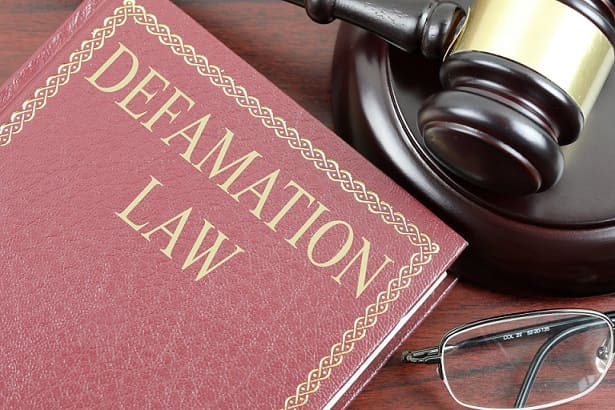
Picture Credits: Pix4free
What Are the Legal Remedies for Social Media Defamation?
Victims can resort to legal support to counteract the damage to their reputation. This can be done in the form of:
Cease and Desist Letter
They can demand removal by writing a letter formally to the concerned parties. In this demand they can ask the defamers to refrain from posting any such untrue claims further. Requesting acknowledgement of the harm caused can be optional.
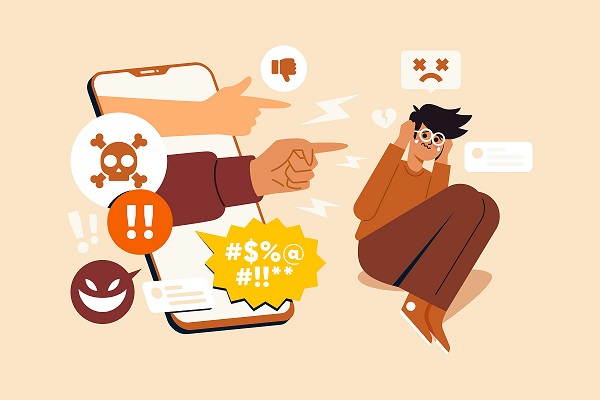
Picture Credits: Freepik
Retraction or Correction
This action involves demanding the attackers to publicly take onus for releasing false information and retracting the information back.
Retractions are particularly effective in cases involving news outlets, influencers, or businesses with public influence.
Damages
Defamed parties can recover damages. Damages are categorized as either of two types:
a) Compensatory Damages These are damages that cover the actual financial harm from defamation. This includes: lost wages; lost business opportunities; lost employment because of injury, etc.
b) Punitive Damages Punitive damages are meant to punish the defamer and deter future misconduct. Courts issue punitive damages when plaintiffs prove the defendant acted purposefully or with conscious disregard. The amount of punitive damages is based on the seriousness of harm, the actual intent of the defendant, and laws in the jurisdiction.
We Value Reputation,
Let’s Rebuild Yours.
A High Reputation Comes With a Cost, Put Value on It.
How Can Social Media Defamation Effects Reputation?
False claims and untrue information can lead to mistrust among consumers. It can in the long run lead to business losses, harassment and in extreme cases career losses.
In such cases, it is important to hire an expert in this field to help minimize damage. They can help build online reputation.
How to Respond to False Accusations on Social Media
It is important to stay calm and avoid taking any extreme steps. Hire an online reputation manager, and gather evidence. If possible, politely request a correction from the person spreading misinformation. Issue a clarifying statement without escalating conflict.
Use legal action if defamation causes serious harm.
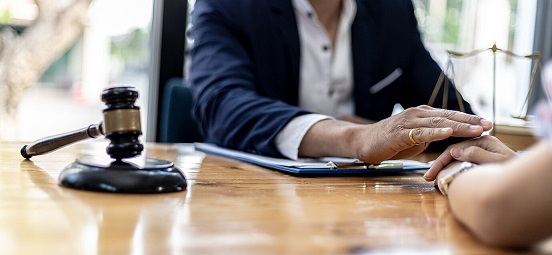
Picture Credits: Freepik
How to Deal With Slander on Social Media?
Slander pertains to spoken defamatory statements, while libel is reserved for written words. Both can be highly damaging, especially in the digital world. Be sure to capture all evidence, including video, voice recordings or even notes of what was said. This will help with any enforcement action. You should also try to publicize the truth without constructing personal attacks. Stick to facts and remain professional. If the statement is very damaging in nature, seek legal counsel. Even if defendants don’t point to legal action {i.e., lawsuits}, it’s a great way to recover damages and restore your credibility.
Can Someone Go to Jail for Social Media Slander?
While defamation also has a civil counterpart, it is typically not a criminal offense. Laws regarding criminal defamation vary from country to country, with some countries , including India, allow Section 499 of the Indian Penal Code to govern criminal defamation based on fitness and place subject to prosecution. Those guilty of this act can face up to two years in prison, or be liable for another course of action. Other illegal, communicative action is when verbiage that displays defamation also leads to actions that incite other types of violence or promote injury or threatens public disorder or norm.
Can You Sue Someone for Slander on Social Media?
Yes, victims of slander can file a lawsuit against the person making false spoken statements.
The lawsuit must prove that the statement was false, publicly shared, and caused reputational harm.
Legal action can lead to compensatory damages, covering financial losses, and punitive damages, punishing the defamer.
Conclusion
Defamation on social media can have serious consequences for the reputation of the individual and can have legal implications. Recognizing the various remedies available for defamation or false accusations, available defenses and proof requirements help secure a party from being damaged by reputational attack. Taking proactive steps can mitigate or deter defamation or reputational damage and enhance an individual’s credibility while they are online.
Reach out to us to learn how to build a consistent brand that stands out, with expert marketing tips straight to your inbox.
Let us help you in becoming a better marketer. Contact us today!

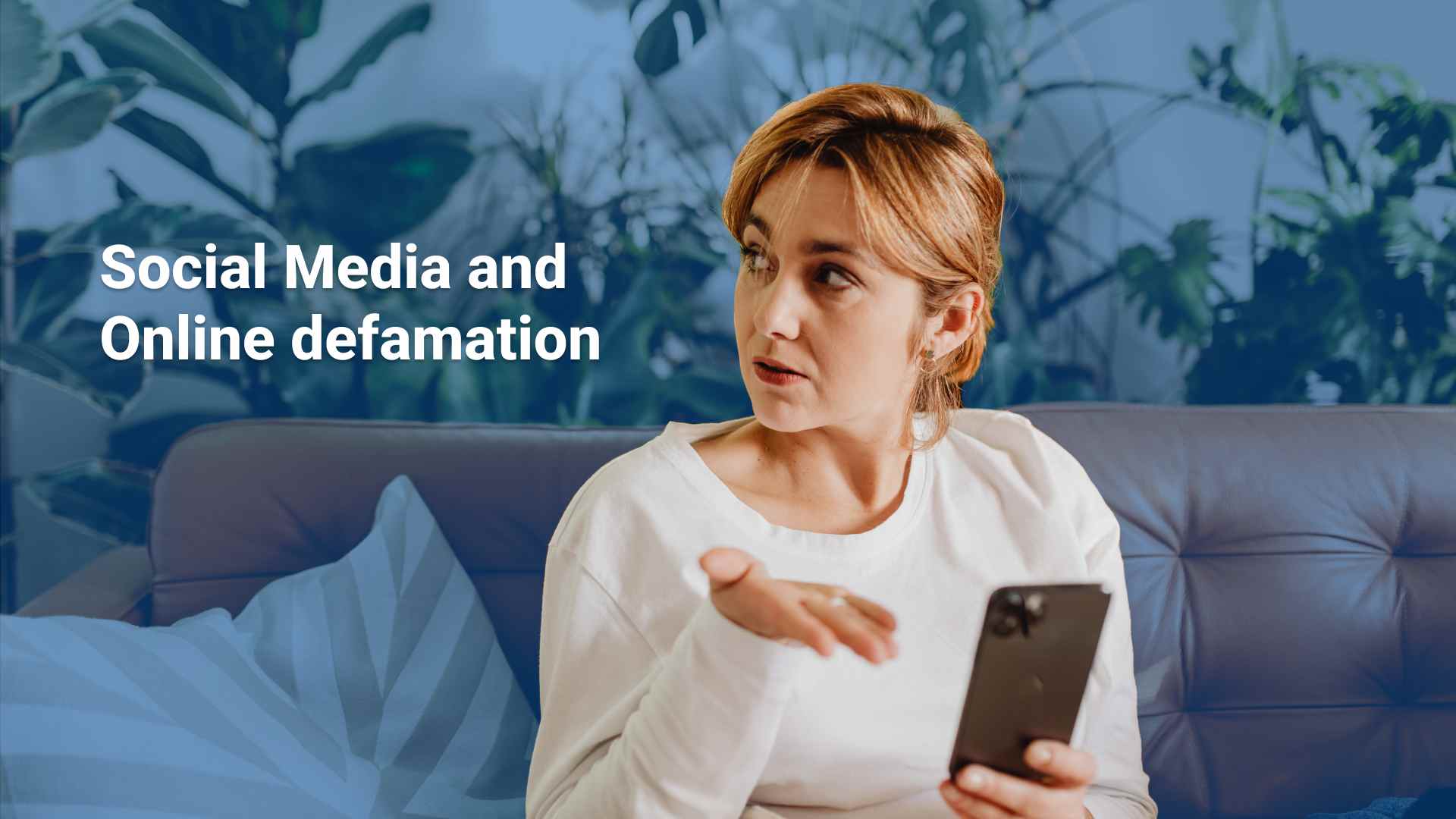











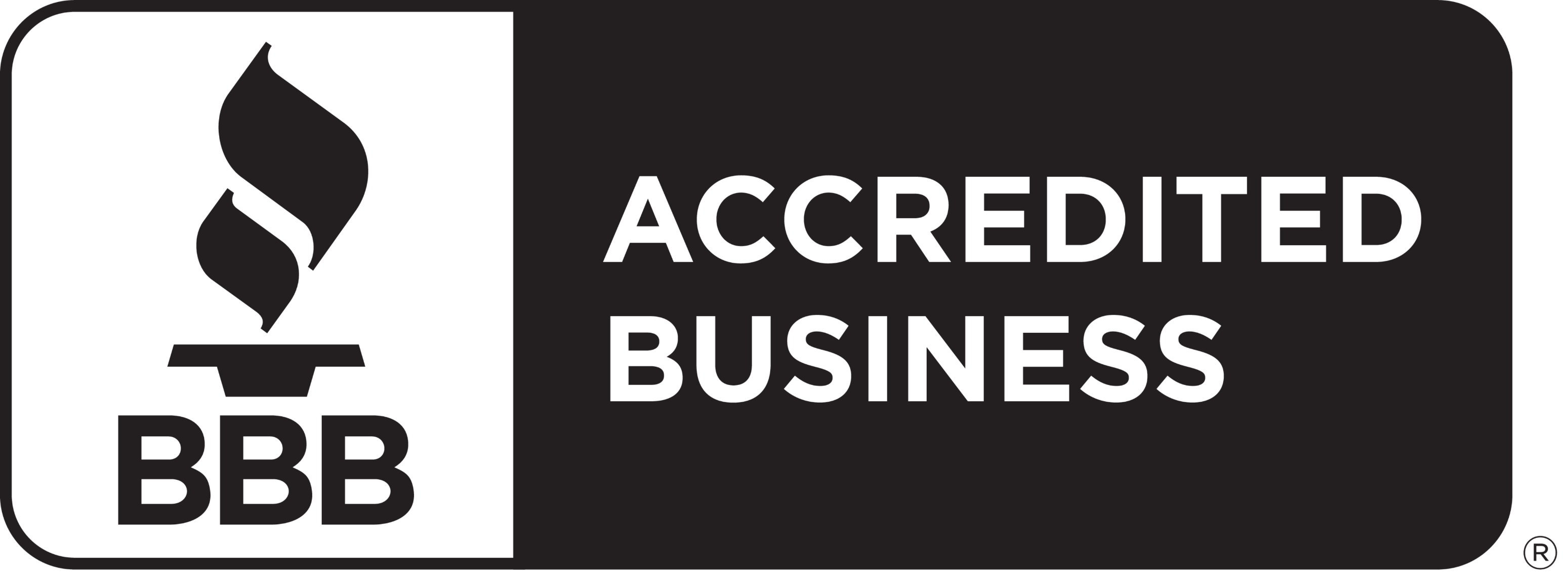
Comments are closed.